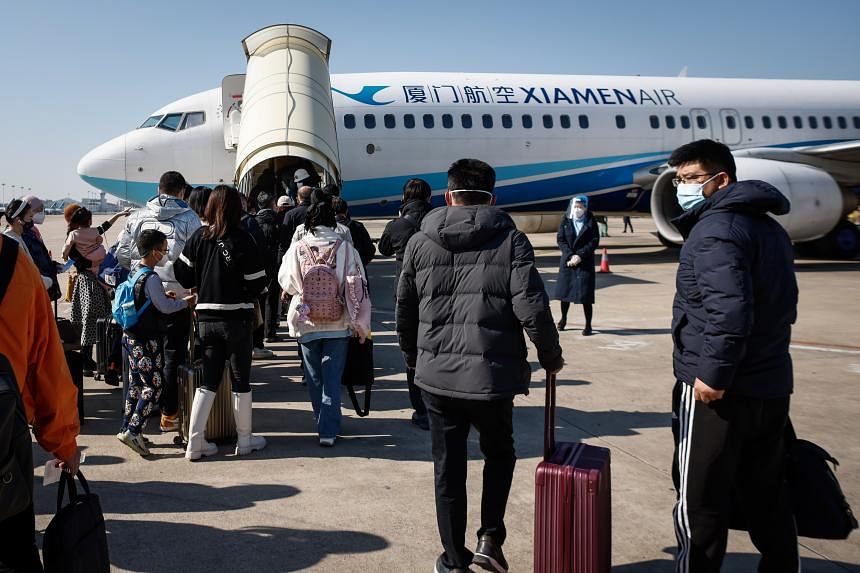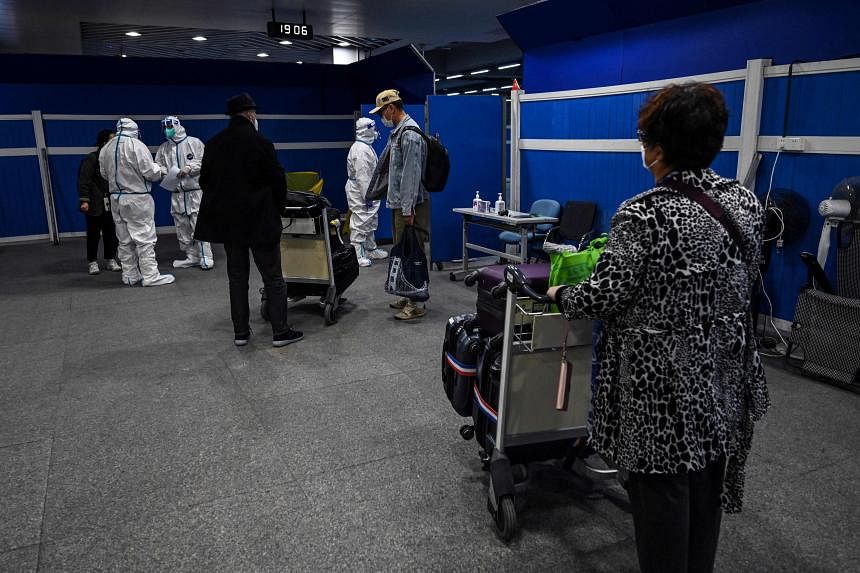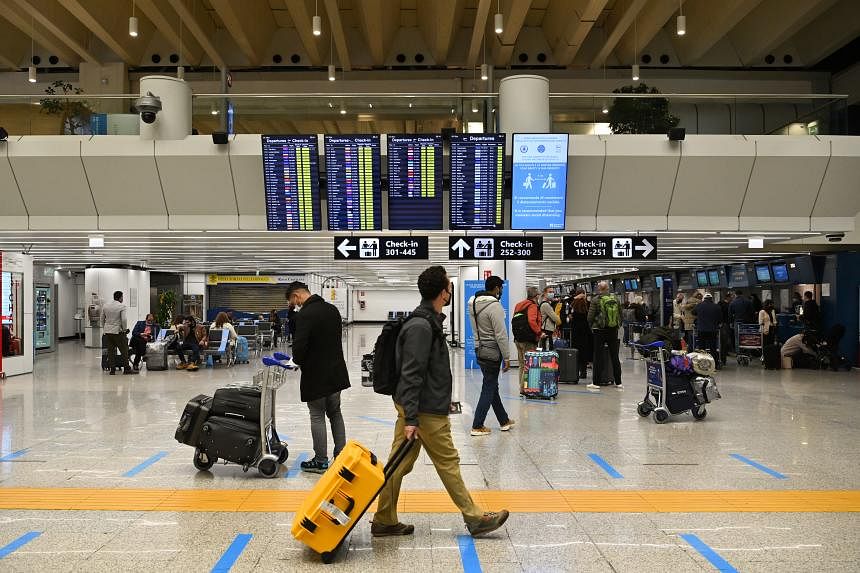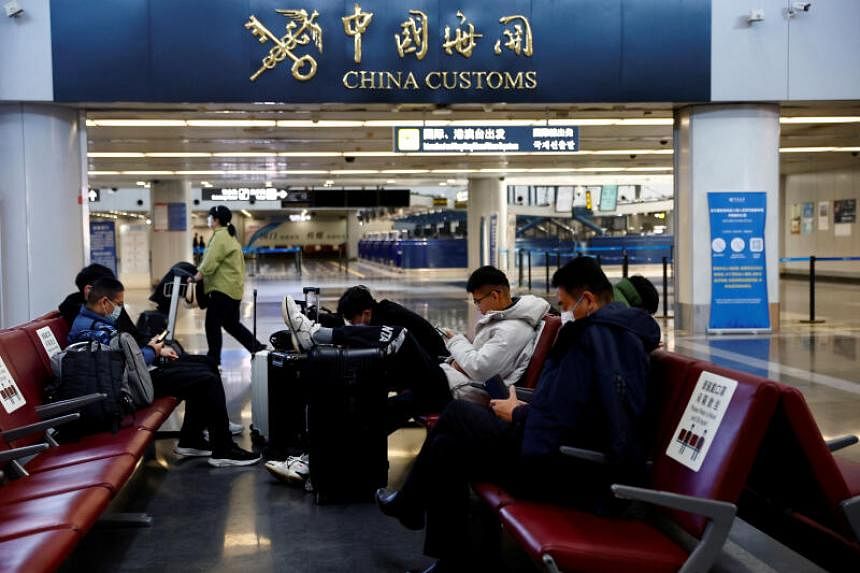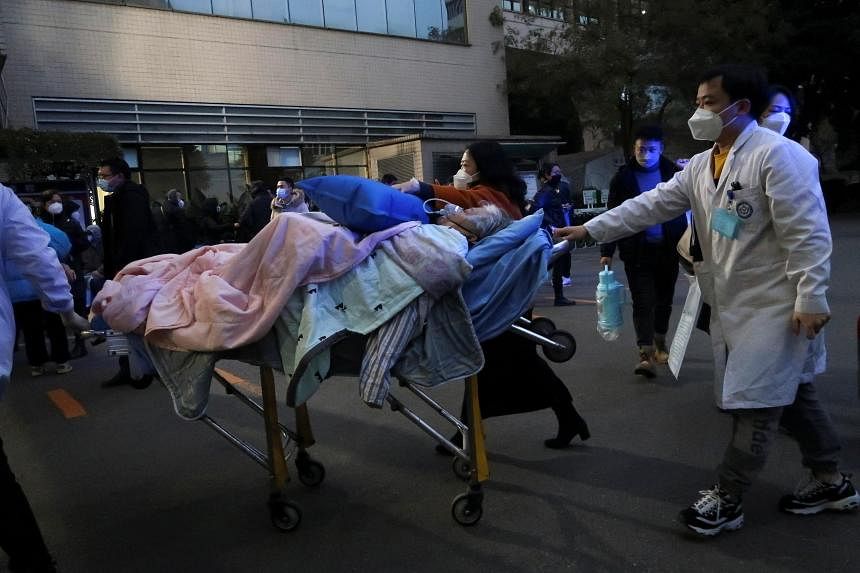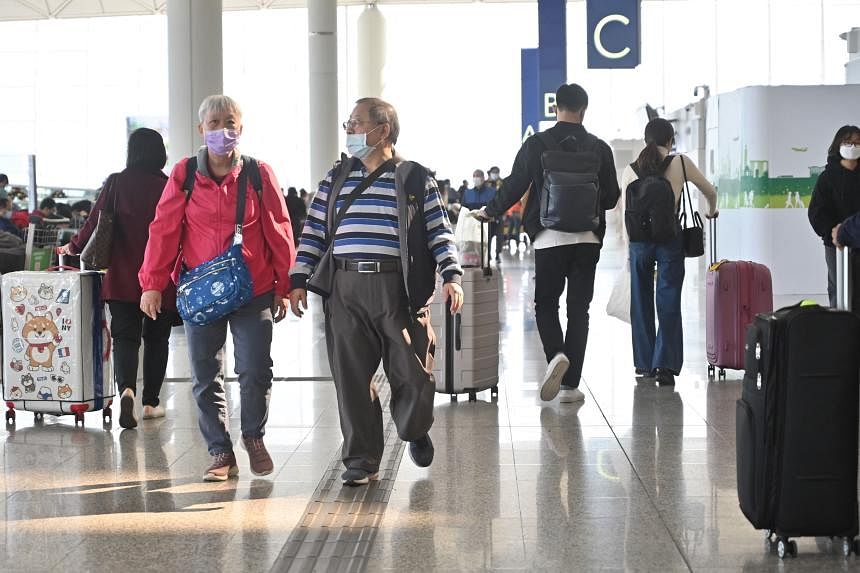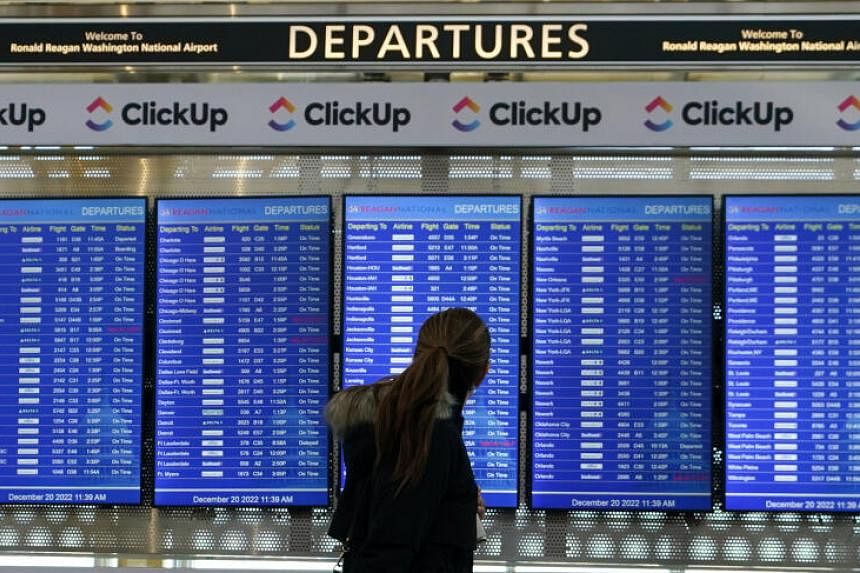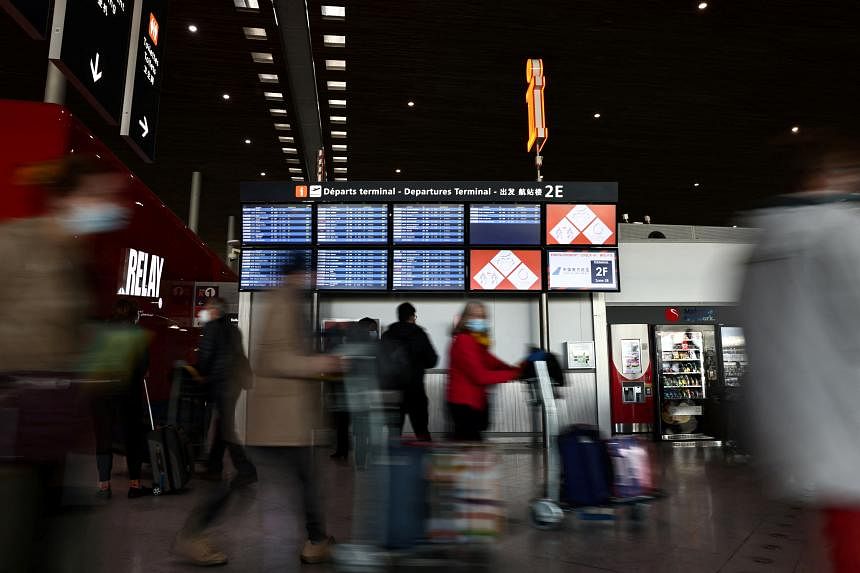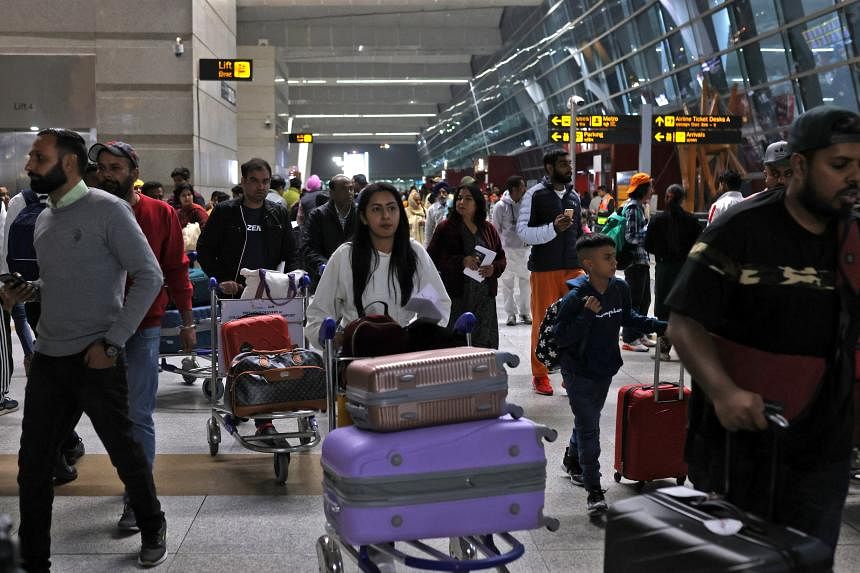The Ah Tiongs are coming to Sinkieland to flee the virus and to seek treatment.
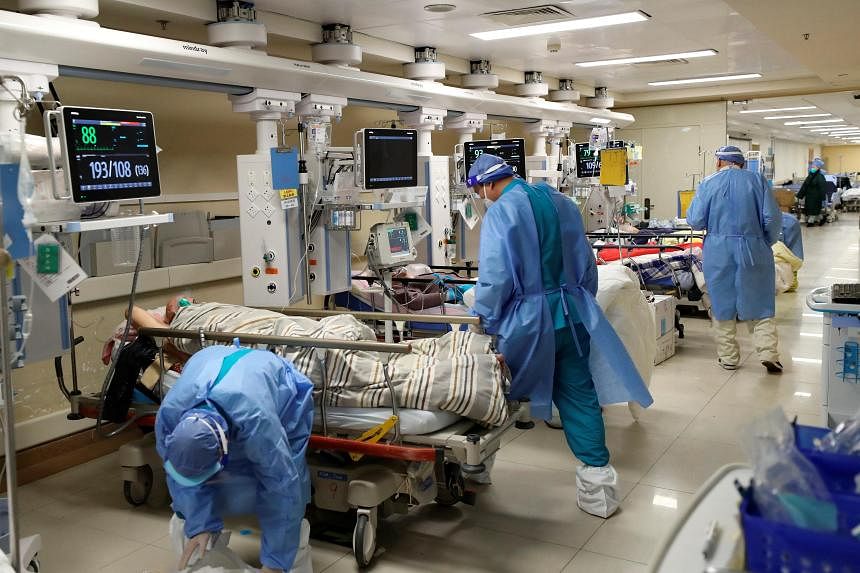
Medical workers attend to patients at the intensive care unit of the emergency department at Beijing Chaoyang hospital. PHOTO: REUTERS
Dec 28, 2022
CHENGDU - Chinese hospitals were under intense pressure on Wednesday as a surging wave of Covid-19 infections strained resources in the last major country to move towards treating the virus as endemic.
In an abrupt change of policy, China earlier this month began dismantling the world’s strictest Covid-19 regime of lockdowns and extensive testing, putting its battered economy on course for a complete re-opening next year.
The move, which came after widespread protests against the restrictions, means Covid-19 is spreading largely unchecked and likely infecting millions of people a day, according to some international health experts.
The speed at which Covid-19 rules have been scrapped has left China’s fragile health system overwhelmed and prompted countries around the world, which have long been living with the virus, to consider travel restrictions for Chinese visitors, given questions about official data coming out of Beijing.
China reported three new Covid-related deaths for Tuesday, up from one for Monday – numbers that are inconsistent with the experience of much less populous countries after they re-opened.
Staff at Huaxi, a large hospital in the south-western Chinese city of Chengdu, said they were “extremely busy” caring for patients with Covid-19, as they have been ever since curbs were eased on Dec. 7.
“I’ve been doing this job for 30 years and this is the busiest I have ever known it,” said one ambulance driver outside the hospital who declined to be named.
There were long queues inside and outside the hospital’s emergency department and at the adjacent fever clinic on Tuesday evening. Most of those who arrived in ambulances were given oxygen tanks to assist with their breathing.
“Almost all of the patients have Covid-19,” one emergency department pharmacy staff member said.
The hospital has no stocks of Covid-specific medicine and instead can simply provide drugs for specific symptoms such as coughing, she added.
Dr Zhang Yuhua, an official at the Beijing Chaoyang Hospital said patients who have come in recently are mainly the elderly and critically ill with underlying diseases. She said the number of patients receiving emergency care had increased to 450-550 per day, from roughly 100 before, according to state media.
Pictures published by state-run China Daily showed rows of mostly elderly patients, some breathing through oxygen tubes, receiving treatment from medical staff in white hazmat suits inside the hospital’s intensive care unit.
Official statistics, however, showed only one Covid-19 death in the seven days to Monday. International health experts predict at least 1 million Covid-19 deaths in China next year.
In a major step towards freer travel, China will stop requiring inbound travellers to go into quarantine from Jan 8, authorities said this week, prompting many Chinese, cut off from the world for so long, to check travel platforms.
But while online searches for flights spiked on Tuesday from extremely low levels, residents and travel agencies suggested a return to anything like normal would take some months yet, given worries about Covid-19 and more careful spending because of the impact of the pandemic.
Moreover, some governments were considering extra travel requirements for Chinese visitors.
US officials cited “the lack of transparent data, including viral genomic sequence data,” as reasons for doing so.
India and Japan would require a negative Covid-19 test for travellers from mainland China, with those testing positive in Japan having to undergo a week in quarantine. Tokyo also plans to limit airlines increasing flights to China.
When asked about the extra travel requirements imposed by Japan and India, a spokesman for China’s foreign ministry said on Tuesday “Covid-19 measures should be scientific, moderate and should not affect the normal flow of individuals”.
China’s US$17 trillion (S$22.9 trillion) economy is expected to suffer a slowdown in factory output and domestic consumption in the near future, as workers and shoppers fall ill.
News of China re-opening its borders sent global luxury stocks higher, but the reaction was more muted in other corners of the market, as the world’s second-largest economy is likely to face subdued global demand in 2023.
US carmaker Tesla plans to run a reduced production schedule at its Shanghai plant in January, extending the restricted output it began this month into next year, according to an internal schedule reviewed by Reuters. Tesla did not specify a reason for the production slowdown in its output plan.
Once the initial shockwave of infections passes, some economists expect Chinese growth to bounce back with a vengeance from what is this year expected to be its lowest rate in nearly half a century, somewhere around 3 per cent.
Morgan Stanley economists expect 5.4 per cent growth in 2023, while those at Goldman Sachs see 5.2 per cent. REUTERS
Chinese hospitals 'extremely busy' as Covid-19 spreads unchecked

Medical workers attend to patients at the intensive care unit of the emergency department at Beijing Chaoyang hospital. PHOTO: REUTERS
Dec 28, 2022
CHENGDU - Chinese hospitals were under intense pressure on Wednesday as a surging wave of Covid-19 infections strained resources in the last major country to move towards treating the virus as endemic.
In an abrupt change of policy, China earlier this month began dismantling the world’s strictest Covid-19 regime of lockdowns and extensive testing, putting its battered economy on course for a complete re-opening next year.
The move, which came after widespread protests against the restrictions, means Covid-19 is spreading largely unchecked and likely infecting millions of people a day, according to some international health experts.
The speed at which Covid-19 rules have been scrapped has left China’s fragile health system overwhelmed and prompted countries around the world, which have long been living with the virus, to consider travel restrictions for Chinese visitors, given questions about official data coming out of Beijing.
China reported three new Covid-related deaths for Tuesday, up from one for Monday – numbers that are inconsistent with the experience of much less populous countries after they re-opened.
Staff at Huaxi, a large hospital in the south-western Chinese city of Chengdu, said they were “extremely busy” caring for patients with Covid-19, as they have been ever since curbs were eased on Dec. 7.
“I’ve been doing this job for 30 years and this is the busiest I have ever known it,” said one ambulance driver outside the hospital who declined to be named.
There were long queues inside and outside the hospital’s emergency department and at the adjacent fever clinic on Tuesday evening. Most of those who arrived in ambulances were given oxygen tanks to assist with their breathing.
“Almost all of the patients have Covid-19,” one emergency department pharmacy staff member said.
The hospital has no stocks of Covid-specific medicine and instead can simply provide drugs for specific symptoms such as coughing, she added.
Dr Zhang Yuhua, an official at the Beijing Chaoyang Hospital said patients who have come in recently are mainly the elderly and critically ill with underlying diseases. She said the number of patients receiving emergency care had increased to 450-550 per day, from roughly 100 before, according to state media.
Pictures published by state-run China Daily showed rows of mostly elderly patients, some breathing through oxygen tubes, receiving treatment from medical staff in white hazmat suits inside the hospital’s intensive care unit.
Official statistics, however, showed only one Covid-19 death in the seven days to Monday. International health experts predict at least 1 million Covid-19 deaths in China next year.
In a major step towards freer travel, China will stop requiring inbound travellers to go into quarantine from Jan 8, authorities said this week, prompting many Chinese, cut off from the world for so long, to check travel platforms.
But while online searches for flights spiked on Tuesday from extremely low levels, residents and travel agencies suggested a return to anything like normal would take some months yet, given worries about Covid-19 and more careful spending because of the impact of the pandemic.
Moreover, some governments were considering extra travel requirements for Chinese visitors.
US officials cited “the lack of transparent data, including viral genomic sequence data,” as reasons for doing so.
India and Japan would require a negative Covid-19 test for travellers from mainland China, with those testing positive in Japan having to undergo a week in quarantine. Tokyo also plans to limit airlines increasing flights to China.
When asked about the extra travel requirements imposed by Japan and India, a spokesman for China’s foreign ministry said on Tuesday “Covid-19 measures should be scientific, moderate and should not affect the normal flow of individuals”.
China’s US$17 trillion (S$22.9 trillion) economy is expected to suffer a slowdown in factory output and domestic consumption in the near future, as workers and shoppers fall ill.
News of China re-opening its borders sent global luxury stocks higher, but the reaction was more muted in other corners of the market, as the world’s second-largest economy is likely to face subdued global demand in 2023.
US carmaker Tesla plans to run a reduced production schedule at its Shanghai plant in January, extending the restricted output it began this month into next year, according to an internal schedule reviewed by Reuters. Tesla did not specify a reason for the production slowdown in its output plan.
Once the initial shockwave of infections passes, some economists expect Chinese growth to bounce back with a vengeance from what is this year expected to be its lowest rate in nearly half a century, somewhere around 3 per cent.
Morgan Stanley economists expect 5.4 per cent growth in 2023, while those at Goldman Sachs see 5.2 per cent. REUTERS


